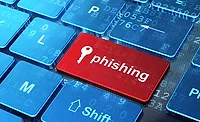Scams and Phishing Attacks Grow as People Operate Online due to COVID-19

ID Experts released new data today showing consumers’ behavior and fears related to their safety online as they adapt to new social distancing and telework restrictions implemented to contain the spread of COVID-19. Not only are more Americans conducting life online than ever before – more than 70 percent are teleworking, and of that, 34 percent have been granted telework options who would otherwise not have had them – but 62 percent have signed up for new tools and platforms to work, study or play. Concerningly, most consumers fail to take adequate precautions to avoid falling prey to the scams they fear. Additionally, consumers indicated a range of reactions to the government’s use of mobile location data to track COVID-19 containment measures.
“The effects of COVID-19 are unprecedented,” commented ID Experts President and CEO Tom Kelly. “Health concerns aside, few forces have had as great an impact on how each of us lives, works and plays. Not only are more of us taking our careers and social lives online, but the scope of data and information we’re making accessible to third parties – criminal or government – is growing by the day. Since stay at home orders have begun, our team is seeing a 50 percent increase in the number of ID Experts members reporting being targeted by scams and phishing through emails, calls and texts. It’s paramount that each of us take precautionary measures to safeguard our digital lives from the new coronavirus- related threats.”
While ID Experts research reveals many respondents (30 percent) expressed concern about themselves or one of their loved ones contracting COVID-19, nearly a quarter of individuals feared for their or their loved ones’ financial security. And while 72 percent are teleworking, 24 percent have lost their jobs due to COVID-19. Of that 72 percent, 34 percent are now able to telework due to COVID-19.
New Tools & Platforms Lead to Greater Digital Privacy Risks
While this shift to telework speaks well to employers’ agility and has promising economic implications, it also opens up a range of new online opportunities for personal and corporate data vulnerabilities. More than a third of respondents have had their information compromised in a past data breach, and with 62 percent having signed up for new tools and platforms since the pandemic began, each new account brings risk. While over half of respondents reported using unique passwords for each new account, 60 percent usually use the same email address for all of their online platforms, placing them at increased risk to sophisticated phishing attacks.
While most respondents expressed familiarity with what data is being collected in many of these platforms, 62 percent were not at all to only moderately comfortable with how that data is being used. Only 17 percent are extremely comfortable with how it’s being used. Forty-six percent of respondents sometimes customize their privacy settings when setting up a new account. Eighty-six percent of respondents are concerned about COVID-19-related email, phone or text phishing scams, and 84 percent are concerned about malware attacks due to the pandemic. Yet, only 13 percent of respondents take the time to create a new email every time they set up a new online account – a key step to avoiding getting targeted by scams.
Will the Government’s Response to COVID-19 Compromise Consumer Data?
When it comes to stopping the spread of coronavirus, 43 percent are comfortable with the government using mobile location data from third parties to track consumer movements, with 30 percent expressing discomfort and 27 percent expressing indifference. And when it comes to trusting the government to use that data only for the control of COVID-19, 44 percent expressed trust that the data would be only used to contain the pandemic, with 34 percent expressing skepticism.
Interviews for this research were conducted online between April 6 - April 7, 2020, from a national sample of 1,006 adults. Results from the survey have a margin of error of +/- 3 percent. See more information about the results here.
Looking for a reprint of this article?
From high-res PDFs to custom plaques, order your copy today!







